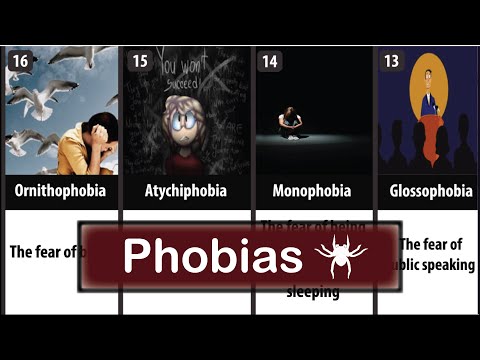Is Public Speaking Anxiety A Social Anxiety?
Is public speaking anxiety a social anxiety? If you’ve ever felt nervous speaking in front of a crowd, you’re not alone. Many people experience anxiety when it comes to public speaking. But is this anxiety the same as social anxiety? In this article, we’ll explore the connection between public speaking anxiety and social anxiety, and whether or not they are one and the same.
Public speaking anxiety, commonly known as stage fright, is the fear or apprehension one feels when speaking or performing in front of an audience. It’s the sweaty palms, racing heart, and shaky voice that many of us have experienced at some point. On the other hand, social anxiety is a broader condition that involves an intense fear of social situations and a constant worry about being embarrassed, judged, or humiliated.
While public speaking anxiety and social anxiety share similar symptoms like nervousness and fear of being in front of others, they are not exactly the same thing. Public speaking anxiety tends to be more specific to speaking or performing in public, whereas social anxiety encompasses a wider range of social interactions. However, it’s not uncommon for individuals with social anxiety to experience heightened anxiety when faced with public speaking situations.
So, if you’re someone who gets anxious about public speaking, it’s important to remember that you’re not alone. Many people have similar fears and concerns. In the following sections, we’ll dive deeper into the world of public speaking anxiety and social anxiety, exploring their causes, symptoms, and strategies for managing and overcoming these challenges. Get ready to conquer your fear of public speaking and gain confidence in social situations!

Is Public Speaking Anxiety a Social Anxiety?
Introduction:
Public speaking anxiety is a common experience that many people face when speaking in front of an audience. It often manifests as nervousness, fear, or anxiety, and can make the person feel self-conscious and worried about their performance. However, is public speaking anxiety the same as social anxiety? In this article, we will explore the relationship between public speaking anxiety and social anxiety, their similarities and differences, and provide insights to help individuals overcome these challenges.
The Nature of Public Speaking Anxiety
Public speaking anxiety, also known as glossophobia, specifically refers to the fear and anxiety experienced when presenting or speaking in public. It is a form of performance anxiety that primarily occurs in social situations where the individual is the center of attention. These situations can include giving presentations, speaking at conferences, or participating in group discussions.
Public speaking anxiety is characterized by physical symptoms such as sweating, trembling, rapid heartbeat, and difficulty breathing. It can also manifest as cognitive symptoms, including racing thoughts, negative self-talk, and fear of judgment or criticism. The fear of making mistakes or being embarrassed in front of others is a common trigger for public speaking anxiety.
Tips to Overcome Public Speaking Anxiety:
1. Practice: The more you practice your speech or presentation, the more confident you’ll feel. Rehearse in front of a mirror or record yourself to identify areas that may need improvement.
2. Deep Breathing: Deep breathing exercises can help calm your nerves and reduce anxiety. Take slow, deep breaths before and during your speech to help regulate your breathing and lower stress levels.
3. Visualize Success: Imagine yourself delivering a successful and engaging presentation. Visualize the positive reactions from the audience and focus on boosting your confidence and self-belief.
4. Seek Support: Seek support from friends, family, or a therapist who can provide encouragement and guidance. Consider joining a public speaking group or enrolling in a communication skills workshop to further develop your speaking abilities.
Social Anxiety and its Impact on Public Speaking
Social anxiety disorder, on the other hand, is a more generalized and pervasive anxiety disorder. It is characterized by intense fear and worry about social situations, including interactions with others and being observed or judged by others. While public speaking is a specific type of social situation, social anxiety extends beyond that to include everyday social interactions, such as conversations, parties, and even eating in front of others.
Individuals with social anxiety often experience significant distress and avoidance of social situations. The fear of being embarrassed, humiliated, or judged negatively is a core feature of social anxiety. This fear can be debilitating and lead to isolation, low self-esteem, and difficulty forming and maintaining relationships.
Tips to Manage Social Anxiety:
1. Cognitive Behavioral Therapy (CBT): CBT is an effective treatment for social anxiety disorder. It helps individuals identify and challenge negative thoughts and beliefs about social situations, and develop positive and realistic thinking patterns.
2. Gradual Exposure: Gradual exposure to feared social situations can help desensitize individuals to their anxiety triggers. Start with small steps, such as engaging in conversations with familiar people, and gradually increase exposure over time.
3. Relaxation Techniques: Learning relaxation techniques, such as deep breathing, progressive muscle relaxation, and mindfulness, can help individuals manage anxiety symptoms in social situations.
4. Support Network: Building a support network of understanding and encouraging individuals can provide emotional support and encouragement. Consider joining support groups or seeking therapy to connect with others who face similar challenges.
Overlap and Differences between Public Speaking Anxiety and Social Anxiety
While there may be some overlap between public speaking anxiety and social anxiety, it’s important to recognize their differences. Public speaking anxiety is a specific fear of speaking in front of an audience, whereas social anxiety is a broader fear of social interactions. Public speaking anxiety is context-specific, while social anxiety extends to various social situations.
Both public speaking anxiety and social anxiety can cause significant distress and interfere with daily functioning. However, social anxiety tends to have a more pervasive impact on a person’s life, affecting not only public speaking but also other areas of social interaction. Treatment approaches for these anxieties may overlap but can also be tailored to address the specific challenges faced by individuals in each category.
Wrap-Up: It is essential to understand the distinction between public speaking anxiety and social anxiety. While they share some similarities, their impact and manifestations can differ. By recognizing the nature of these anxieties and adopting effective coping strategies, individuals can overcome their fears, enhance their communication skills, and regain confidence in social and public speaking situations.
Key Takeaways: Is Public Speaking Anxiety a Social Anxiety?
1. Public speaking anxiety and social anxiety are related but not the same.
2. Public speaking anxiety is specific to the fear of speaking in public.
3. Social anxiety is a broader fear of social interactions in general.
4. Public speaking anxiety can be a symptom of social anxiety.
5. Both types of anxiety can be managed with practice and professional help.
Frequently Asked Questions
Welcome to our FAQ section on public speaking anxiety and social anxiety disorders. Below are some commonly asked questions related to these topics.
What is public speaking anxiety?
Public speaking anxiety, also known as stage fright or glossophobia, is a fear or nervousness associated with speaking or performing in front of an audience. It is a common form of social anxiety that specifically relates to public speaking situations. People experiencing public speaking anxiety may feel intense fear or dread leading up to, during, and after speaking engagements, which can significantly impact their confidence and performance.
Public speaking anxiety, although distressing, is a normal phenomenon that many people experience to some extent. It becomes problematic when it starts interfering with a person’s daily life, causing significant distress, and impairing their ability to function effectively in social or occupational settings.
Is public speaking anxiety a form of social anxiety?
Yes, public speaking anxiety is considered a form of social anxiety. Social anxiety disorder, or social phobia, is a persistent and excessive fear of social or performance situations, where individuals are afraid of being humiliated, embarrassed, or judged by others. Public speaking anxiety falls under the social anxiety umbrella as it specifically relates to fear and anxiety around speaking or performing in public.
However, it is important to note that not all individuals with social anxiety experience public speaking anxiety, and vice versa. Social anxiety may manifest in different ways for different individuals, and while some may struggle with public speaking, others may find interactions in smaller social settings to be more challenging.
What are the symptoms of public speaking anxiety?
The symptoms of public speaking anxiety can vary from person to person, but common symptoms include:
– Intense fear or dread leading up to a speaking engagement
– Rapid heartbeat, sweating, trembling, or feeling lightheaded
– Dry mouth or difficulty speaking
– Nausea or stomach discomfort
– Racing thoughts or a feeling of being “blank”
– Avoidance behaviors, such as refusing speaking opportunities or finding excuses to avoid them
– Negative self-talk or self-criticism
– Post-event rumination or overthinking
These symptoms can significantly impact an individual’s confidence, self-esteem, and overall well-being.
Can public speaking anxiety be overcome?
Yes, public speaking anxiety can be overcome with proper support and practice. Some strategies to help manage and overcome public speaking anxiety include:
– Gradual exposure: Gradually exposing oneself to speaking situations, starting with smaller or less intimidating audiences, and gradually working up to larger ones.
– Preparation and practice: Preparation and practice can build confidence and reduce anxiety. Practicing the speech or presentation multiple times can help familiarize oneself with the content and delivery.
– Deep breathing and relaxation techniques: Breathing exercises and relaxation techniques like progressive muscle relaxation can help reduce physical symptoms of anxiety.
– Cognitive-behavioral therapy (CBT): CBT is often effective in treating social anxiety and can help individuals identify and challenge negative thought patterns related to public speaking.
When should someone seek professional help for public speaking anxiety?
If public speaking anxiety significantly impacts a person’s quality of life, causes intense distress, or interferes with their ability to function in social or occupational settings, it may be beneficial to seek professional help. Mental health professionals, such as therapists or psychologists, can provide guidance, support, and evidence-based treatments for managing public speaking anxiety and any underlying social anxiety disorder.
It’s important to remember that seeking help is a sign of strength, and with the right treatment and support, individuals can overcome their fears and regain confidence in public speaking.
Public Speaking with Social Anxiety – Dr. Russ Morfitt
Summary
Public speaking anxiety and social anxiety are closely related, but they are not exactly the same thing. While public speaking anxiety is a fear specifically related to speaking in front of an audience, social anxiety is a broader fear of social situations in general. Public speaking anxiety can be a symptom of social anxiety, but not all people with social anxiety have a fear of public speaking.
Understanding the difference between public speaking anxiety and social anxiety can help individuals identify and address their specific fears. It is important to remember that both conditions are common and treatable, and there are strategies and therapies available to help alleviate the symptoms. By seeking support and practicing self-care, individuals can overcome their anxieties and build their confidence in public speaking and social situations.





